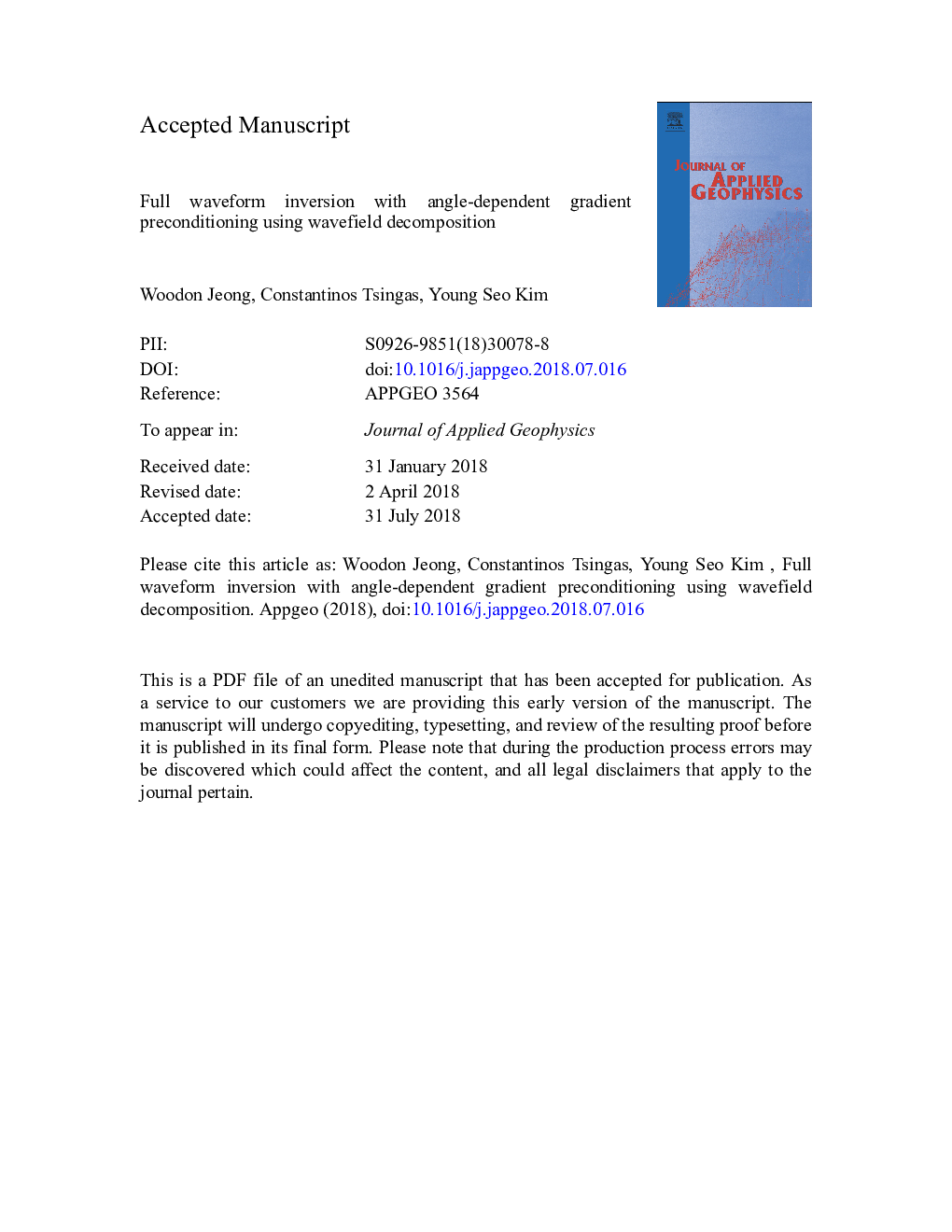| کد مقاله | کد نشریه | سال انتشار | مقاله انگلیسی | نسخه تمام متن |
|---|---|---|---|---|
| 8915271 | 1641092 | 2018 | 40 صفحه PDF | دانلود رایگان |
عنوان انگلیسی مقاله ISI
Full waveform inversion with angle-dependent gradient preconditioning using wavefield decomposition
ترجمه فارسی عنوان
انحراف شکل موج کامل با استفاده از زاویه گرادیان پیش سازی با استفاده از تجزیه موج موج
دانلود مقاله + سفارش ترجمه
دانلود مقاله ISI انگلیسی
رایگان برای ایرانیان
کلمات کلیدی
نظریه معکوس، انحراف شکل موج کامل، جریان نوری، پیش تهویه
موضوعات مرتبط
مهندسی و علوم پایه
علوم زمین و سیارات
فیزیک زمین (ژئو فیزیک)
چکیده انگلیسی
The main objective of the full waveform inversion (FWI) is to deliver a velocity model which produces accurate and high resolution depth images. An integral part of FWI is the iterative optimization process aiming at minimizing an objective function describing the misfit between the observed and modelled data with respect to the velocity model parameters. However, FWI commonly suffers from local minima due to errors in data fitting and the starting velocity model. In this study, we develop a methodology to enhance convergence and mitigate the risk of having solutions falling into local minima. We employ optical flow to decompose the source and residual receiver wavefields and map them into the subsurface angle domain. Having evaluated the propagation vectors of the respective cleaner wavefields, subsurface reflection and azimuth angles can be robustly computed. Using such information we can apply angle-dependent preconditioning within the inversion algorithm. During a conventional FWI workflow, larger angles (i.e., transmission wavepaths) are mainly responsible for long wavelength velocity anomalies whereas narrow angles (i.e., reflection wavepaths) influence short wavelength velocity anomalies. In the proposed FWI methodology, we apply an optimized weighting function based on these estimated subsurface reflection angles in order to weight certain angle directions needed for gradient estimation using in parameter updating. Following a hierarchical approach, allowing for larger angles at the early stage of the FWI application, we initially solve for the smooth and longer wavelength velocity updates. Relaxing the opening angle from large to mid to narrow, the gradient direction will first estimate long wavelength velocity model updates (transmission-based wavepaths), following by short wavelength velocity model updates (reflection-based wavepaths). Moreover, angle-dependent-based gradient preconditioning can reduce cycle skips and improve convergence during FWI iterations.
ناشر
Database: Elsevier - ScienceDirect (ساینس دایرکت)
Journal: Journal of Applied Geophysics - Volume 159, December 2018, Pages 23-31
Journal: Journal of Applied Geophysics - Volume 159, December 2018, Pages 23-31
نویسندگان
Woodon Jeong, Constantinos Tsingas, Young Seo Kim,
